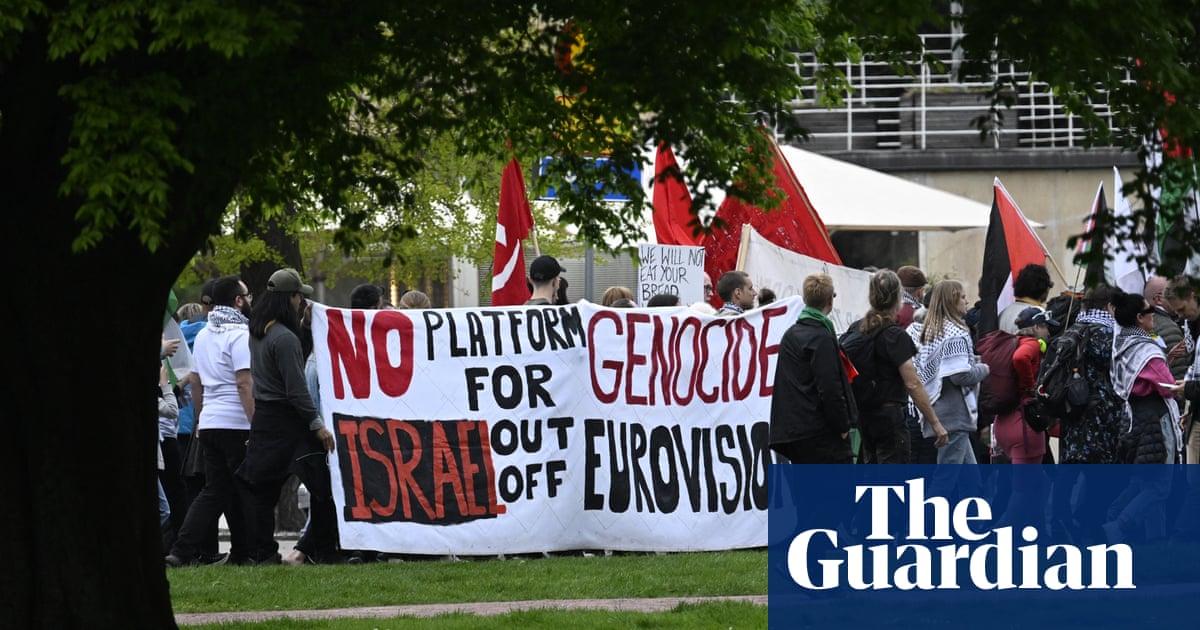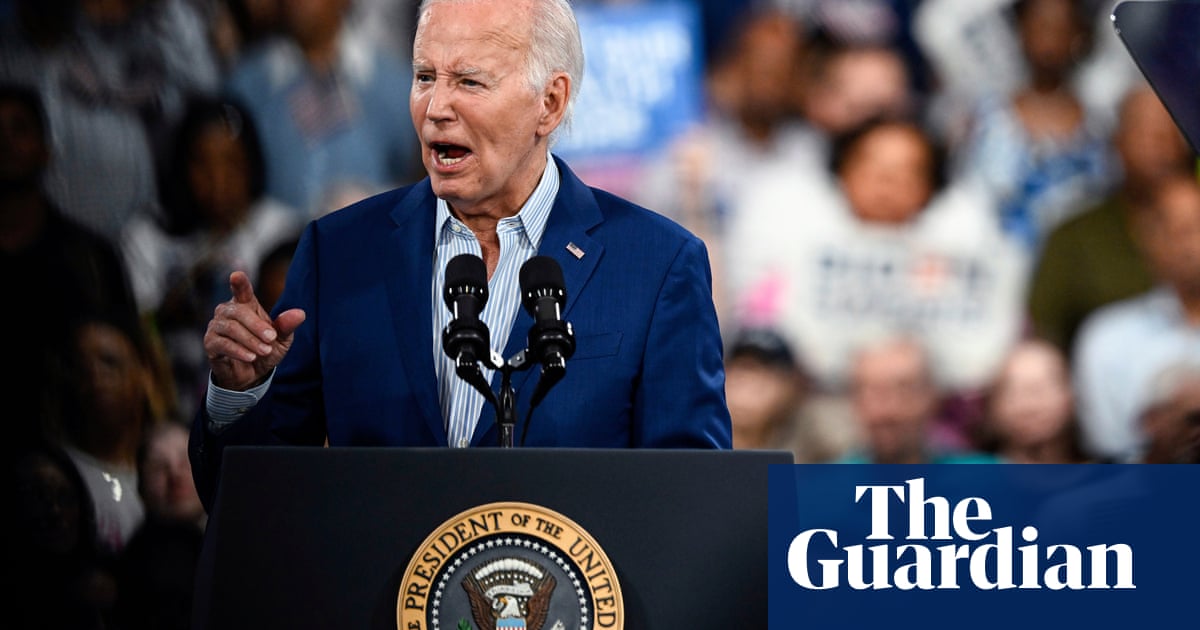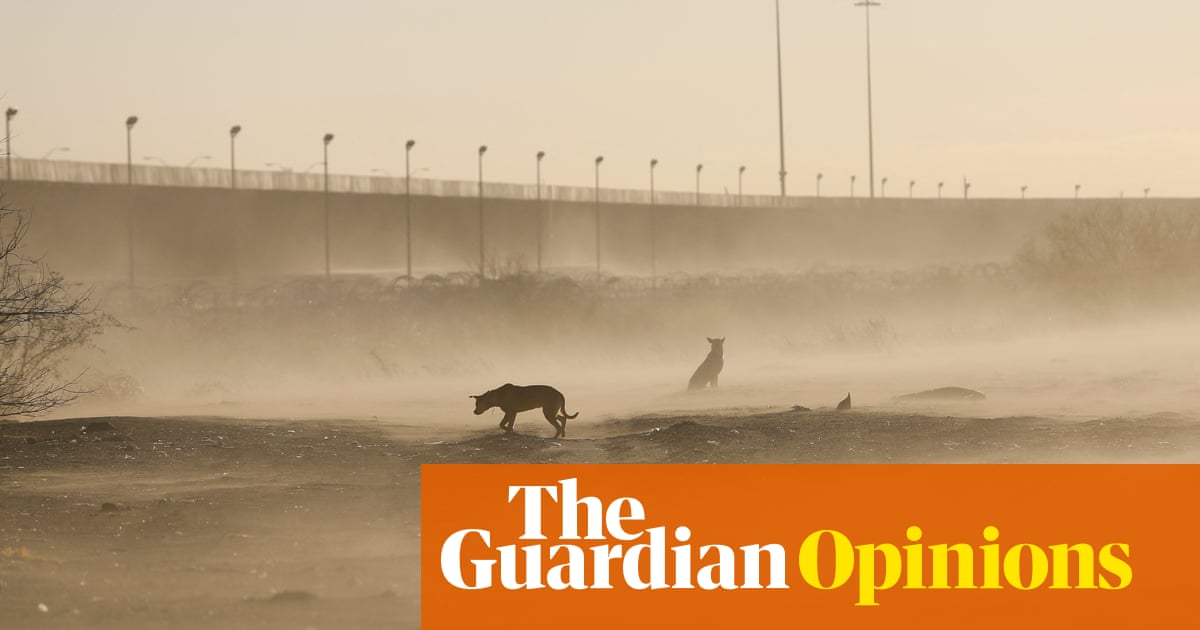The official motto of the 68th edition of Eurovision is âunited by musicâ, but as the continentâs beglittered and sequined masses descended on the Swedish city of Malmö for Saturdayâs grand final, musicâs ability to heal and bridge divides was looking in serious doubt.
In the run-up to the song contestâs main event, the Netherlandsâ performer Joost Klein missed his slot in the dress rehearsals after being put under investigation by the European Broadcasting Union (EBU) due to an unexplained âincidentâ.
At a press conference on Thursday night, several performers, including Klein, had signalled their frustration that the debate around the inclusion of Israel â guaranteed after the singer Eden Golan qualified at the semi-finals â was likely to overshadow the worldâs largest live music event.
Klein, who is due to perform just before Dolan on Saturday night, was asked at a press conference if his gabber-infused pop anthem to free movement, Europapa, could live up to the competitionâs unifying motto. He said pointedly: âI think thatâs a good question for the EBU.â
In March, the association of broadcasters ruled that Israel was allowed to compete as long as it changed the lyrics to its entry, then called October Rain, about the trauma of the Hamas massacre on 7 October.
The EBU has defended its decision by saying Eurovision is âa non-political music eventâ and ânot a contest between governmentsâ.
Golan, 21, had been ordered by Israelâs national security agency to stay in her hotel room between performances and was ushered to dress rehearsals in a convoy of cars. At the lineup of semi-finalists, she cut a forlorn figure near the stage exit, not least because the other participants did not appear willing to volunteer gestures of solidarity.
When a Polish journalist asked Golan if she had considered that her presence at the contest might be endangering the other acts and the attending fans, there were murmurs around the auditorium and the host intervened to say she did not have to answer the question if she did not want to. âWhy not?â interjected Klein, who sat next to her, a Dutch flag draped over his head.
The Greek performer Marina Satti also appeared to mimic falling asleep when Golan was asked a question by Israeli press.
Klein was absent from Fridayâs dress rehearsal in spite of having briefly appeared during the flag parade at the beginning.
Eurovisionâs organisers said: âWe are currently investigating an incident that was reported to us involving the Dutch artist. He will not be rehearsing until further notice.â
In the run-up to the song contest, pro-Palestinian activists had unsuccessfully urged participating artists to boycott the five-day event.
As fans from across Europe, dressed in colourful suits, sequined dresses and draped in national flags, made their way to the venue on Thursday, about 5,000 protesters gathered at Malmöâs Stortorget square with Palestinian flags, black-and-white keffiyeh scarves and banners reading âBoycott Israelâ.
One of them was Christofer Kibbon, 19, who attended the protest as a member of Fridays for Future Sweden. âIsrael is using the ESC to âpink-washâ themselves,â he said. The fact that Israel was asked by the broadcastersâ union to modify its entry, he said, âshows they are trying to spread their messageâ.
In the city centre, many of the official posters and banners have been graffitied over to read âUnited by genocideâ. More protests are expected on Saturday.
At a smaller rally in Malmöâs Davidshall neighbourhood on Thursday evening, heavily guarded by police, about 120 people waved Israeli and Swedish flags, sang Golanâs Hurricane and danced the horah to a previous Israeli Eurovision entry.
âGolan was coming to very hateful surroundings [in Malmö] and we absolutely did not like that,â said Jehoshua Kaufman, one of the gatheringâs organisers. âWe wanted to welcome her and have a tribute to the people murdered at the Nova festival on 7 October.
âThere is such a fear of having different opinions in this city. You can probably walk around Malmö with a kippah, but not with an Israeli flag.â
Shortly before making his comments, a woman walked up to Kaufmanâs congregation shouting âgenocideâ and âmurderersâ, before being escorted away by police.
France famously called Eurovision a âmonument to drivelâ when it declined to send an entry in 1982. Yet even drivel is rarely apolitical.
Originally conceived of as an experimental vehicle for new cross-border broadcasting techniques, the song contestâs ethos of European unity was âalmost an unintended consequence of the political context in postwar Europeâ, said Paul Jordan, a cultural historian who was part of the international jury for the French national selection for Eurovision in 2019.
The bridges that the contest is able to build are nonetheless real. There are not many events in Europe where Swiss non-binary singers make friends with Greek dancers, acerbic Estonians dance behind the stage with bubbly Armenians dress in folk dresses, or where young Turkish fans cheer on Greece, its longstanding rival in the Aegean Sea.
The Greek singer Marina Satti welcomed her new fans with open arms on Thursday night: âWe really love Turkey,â she said at the press conference after the second semi-final, while also commemorating the absence of Romania and Bulgaria and insisting that the musical traditions of the eastern Mediterranean region go deeper than the national boundaries of today.
Owing to Eurovisionâs supposedly apolitical status, even simple messages are often articulated in a veiled way, which has given the proceedings around the contest a surreal air this year.
âWe are the only country in the world that is in the shape of a butterfly,â said the Latvian singer Dons after progressing to the finals. âA butterfly symbolises hope and freedom because to be a butterfly, you have to fly and you have to be free. And every country in the world deserves to be free.â
Was he talking about Latvia and its fellow Baltic states in the post-Soviet space? Ukraine? Palestine? At a song contest as highly charged with political debates as this yearâs, itâs unlikely to be the last talking point.



